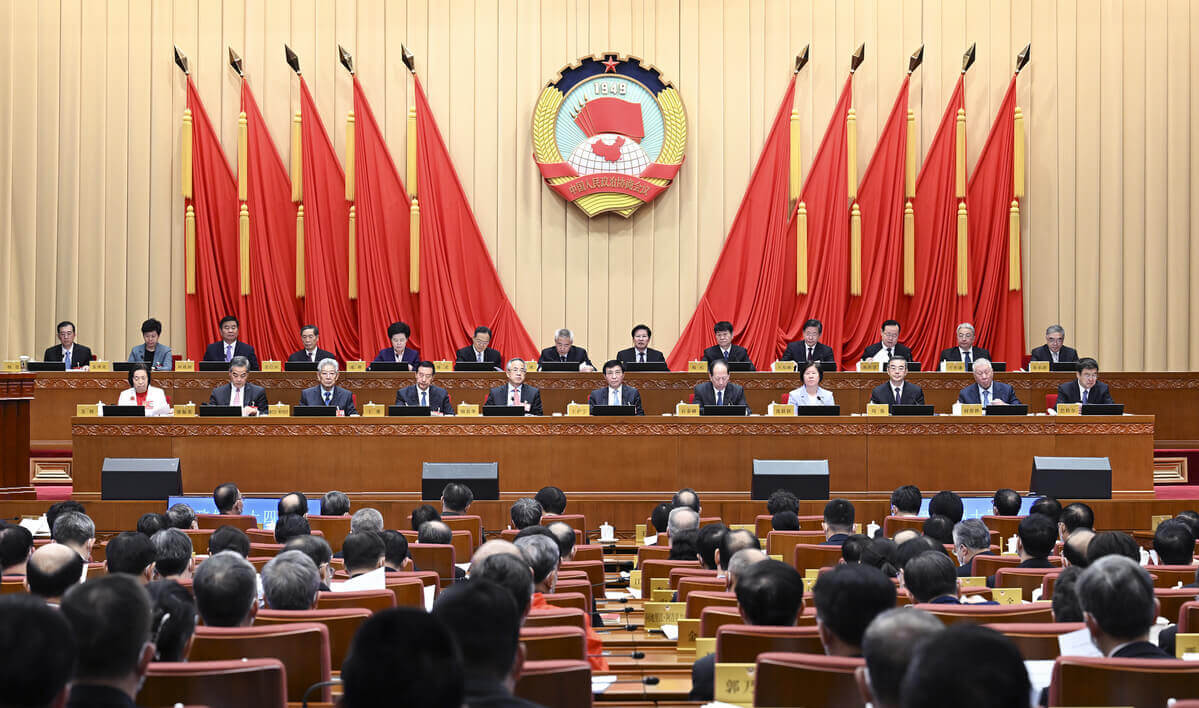China, on Wednesday, adopted new legislation that oversees all-encompassing aspects of Beijing’s foreign policy as part of its efforts to counter Western sanctions.
Foreign Relations Law
The Foreign Relations Law, which particularly focuses on national security and countering the US’ “long arm jurisdiction,” is expected to help the Asian giant in using domestic law as a shield against Western sanctions and help deter future provocations.
According to Chinese state mouthpiece Global Times (GT), the six-chapter law stipulates “the guidance and basic principle of foreign relations and specific provisions on the functions and powers of foreign relations, the objectives and tasks of the development of foreign relations, the legal system of foreign relations, and the capacity building and guarantee for the development of foreign relations.”
Anti-Western Laws
In recent years, China has introduced several laws and regulations to help counter the effect of US-led actions, including the Anti-Foreign Sanctions Law in 2021, and the newly revised counter-espionage law, which will come into effect on 1 July.
The Standing Committee of the 14th National People's Congress (NPC) concluded its third session Wednesday in Beijing. At the closing meeting, lawmakers voted to adopt the law on developing barrier-free environments and the law on foreign relations https://t.co/BJl7aiX33T pic.twitter.com/i0GN0IEybC
— China Xinhua News (@XHNews) June 28, 2023
Wang Jiangyu, a professor at the School of Law at City University of Hong Kong, told the South China Morning Post that, unlike the anti-sanctions law, the Foreign Relations Law will serve as “an umbrella law … that governs China’s conduct of foreign relations in every respect.”
In her regular press briefing yesterday, Chinese Foreign Ministry spokesperson Mao Ning also addressed the counter-espionage law, stating, “Every country has the right to safeguard national security through domestic legislation.”
“China is advancing law-based governance on all fronts and will continue to uphold the rule of law, conduct law enforcement and protect lawful rights and interests of individuals and organisations in accordance with the law,” she said.
Dismissing concerns that the law would limit journalists’ activities in the country, Mao said that “There is no need to associate the counterespionage law with reporting activities of foreign journalists.”
“China always welcomes media outlets and journalists of all countries to conduct interviews [...] As long as one abides by laws and regulations, there is no need to worry,” she said.
Cold War Warning
Experts have voiced concerns that such laws, which will further consolidate the Chinese Communist Party’s control over the country’s external interactions, will heighten the US-China Cold War-style confrontation and make it harder for foreign companies to operate in the Asian superpower.

